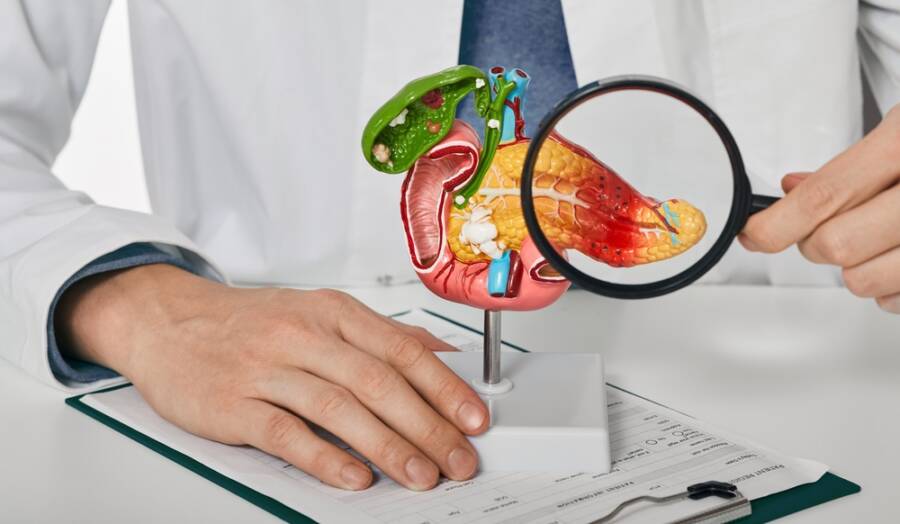Chronic obstructive pulmonary disease, a.k.a. COPD, is a pretty common health issue among Americans. It affects an estimated 30 million Americans, making it the fourth-leading cause of death in our country. The saddest part? Half of the Americans who have this disease don’t even know it.
Wondering why? Because its symptoms tend to appear gradually and, even worse, they are often mistaken for something else, like allergies, the flu, a cold, or other less serious health issues. COPD actually refers to a group of progressive lung diseases, but the most common ones are emphysema and chronic bronchitis.
If left untreated, COPD can even lead to heart problems. So, if you’re experiencing any of the following symptoms, don’t wait and talk to your doctor immediately.
Shortness of breath
Also known as dyspnea, shortness of breath can have many root causes, including chronic obstructive pulmonary disease. However, we are not referring to the ones you have during and after intense physical workouts but those you experience even when doing normal activities like getting dressed.
Most COPD patients struggle to catch their breath, even when taking a shower. According to Jeffrey D. Cirillo, Ph.D., of the Texas A&M Health Science Center College of Medicine in College Station, this difficulty in breathing comes from a lack of flexibility in a COPD patient’s lungs. In other words, it restricts lung capacity.
If you tend to experience shortness of breath for apparently no reason, call your doctor.

Coughing
Did you know that a chronic cough can be one of the first signs of COPD? Unfortunately, we don’t associate coughing with COPD but with a common cold or something minor. Still, if your coughing doesn’t go away in a week or so, it should definitely concern you.
Unlike most coughs, the ones associated with chronic obstructive pulmonary disease don’t go away. Coughing is actually a sign signaled by your body. When your body is trying to get rid of mucus, it makes you cough. So, if your cough doesn’t want to go away, even when you’ve tried different meds, visit your doctor because it might be COPD.
Excess phlegm
Are you coughing up phlegm, but you’re not really sick? Well, it’s time to call your doctor, as sputum (excess phlegm) is a pretty common symptom of chronic obstructive pulmonary disease. And yes, healthy people also produce mucus to keep the airways moist, but the amount of mucus produced is way too much in COPD patients.
According to doctors, the excess phlegm caused by COPD can act like a spider’s web, attracting bacteria and other enemies that don’t belong in our bodies. If the sputum expelled is brown, green, yellow, or red, it means that you have a lung infection, so don’t ignore it!
Wheezing
Wheezing refers to a high-pitched whistling sound made when someone breathes. In general, it is heard when that person exhales, but in severe cases, it can easily be heard when he or she inhales, too. Wheezing actually comes from inflammation or narrowed airways.
Wheezing is definitely not a symptom to be ignored, as it can signal serious diseases, including COPD. However, don’t rush into making any assumptions. Wheezing can also be caused by a reaction to smoking or bronchiolitis, a common viral respiratory infection.
Don’t ignore this noise when you’re breathing! Please inform your doctor about it as soon as possible.
Chest pain
Like most of the signs and symptoms listed here, chest pain is pretty common. However, in most cases, chest pain requires a visit to the emergency room. From heart-related causes to bone-related and lung-related ones, chest pain is (most times) a life-threatening symptom.
Lung-related causes of chest pain can be pneumonia, pneumothorax, pulmonary embolism, viral bronchitis, and bronchospasm, the latter occurring in people with COPD. In most COPD cases, chest pain strikes due to difficulty breathing and an inability to exhale. When your body struggles with these two, your chest muscles can’t relax, eventually leading to extreme pain felt in the chest.
Chronic bronchitis
Chronic bronchitis is also a type of chronic obstructive pulmonary disease. It is basically an inflammation of the bronchial tubes’ lining. People with chronic bronchitis experience excess phlegm or mucus. And while acute bronchitis has similar symptoms, it doesn’t last as long as chronic bronchitis.
In fact, chronic bronchitis can last for months, and it’s often recurrent. Due to excess mucus, bacteria can thrive in your lungs, and if this happens to you too, you may experience chills and a mild fever. As soon as you think that something’s wrong with your cough, call your doctor, as it may be more than just a cold or something less severe.
Lung infections
Those who have a type of COPD are more prone to lung infections, whether bacterial or viral. It is crucial to get your annual flu shot, as it can protect against respiratory infections. If you don’t, you can experience a variety of symptoms, from mild to severe.
A cough that produces thick mucus, stabbing chest pains, fever, body aches, runny nose, shortness of breath, and a bluish appearance of the skin are all symptoms of a lung infection. The H1N1 vaccine, the regular flu vaccine, and the pneumovax vaccine are recommended for those with lung issues. If you know you’re at risk, please get your vaccines!
Fatigue
Feeling tired all the time is what COPD patients call normalcy. Because their bodies have to work harder to breathe, people with COPD are exhausted every single day. A study published in the journal Chest found that people with COPD who complained of feeling fatigued tended to have impaired lung function.
If you’re constantly tired, and you don’t really know why, as you’re not a sports enthusiast, maybe it’s time to talk to your doctor; you may need to talk to a pulmonologist too. And even if you just got back from your check-up and everything seems fine with your lungs, chronic fatigue is not normal! Identify the root cause in order to treat it accordingly.
Barrel chest
Have you ever heard of a barrel chest? It is a physical condition that describes the swelling of the chest. It was named “barrel chest” because, when swollen, the torso looks similar to a barrel. In general, people who have barrel chests are in the late stage of the disease.
Having a barrel chest is basically the result of lungs that are filled up with air and you can’t exhale. Barrel chest can also be caused by emphysema (a condition caused by smoking), brittle bone disease, and acute bronchitis. If you feel like you can’t get the air out of your lungs, head to the hospital immediately.

Mood and memory issues
When left untreated, the chronic obstructive pulmonary disease can lead to memory and mood problems. This could appear due to the lack of oxygen supply to the brain. Sadly, mood and memory issues are common symptoms of many medical issues.
One thing is certain: Around 40 percent of people with COPD are depressed. And while this percentage may come from the emotional impact of knowing you have a chronic condition, a lack of oxygen may also cause mood changes, as studies suggest.
If you’re feeling depressed lately and you can’t really blame it on something, talk to a professional.
Unexplained weight loss
Well, I think weight loss is a good reason to celebrate for most of us, but if you didn’t do anything to achieve it, don’t celebrate “your victory,” at least not yet. Why? Because approximately a quarter of people with COPD experience unintentional weight loss.
People with COPD may also find it hard to maintain a healthy weight. Unexplained weight loss is more common in people with emphysema-type COPD. As doctors suggest, weight loss caused by COPD is a result of muscle atrophy and underlying depression, which causes a loss of appetite.
Increased energy expenditure associated with breathing is also a culprit. So, if you’re not on a weight loss diet, and yet you see smaller numbers on the scale, talk to your doctor ASAP.
This book might be helpful if you want to learn more about COPD.
You should also check out: 7 Common Foods That Might Devastate Your Blood Pressure













